Culture & Travel
21 March 2023Birleşmiş Milletler Örgütü'ne ait kollardan biri olarak bilinen UNESCO'nun kültür, bilim ve eğitim gibi pek çok konu üzerinde gösterdiği önemli çalışmalar yer almaktadır. Bu çalışmalardan biri de UNESCO Dünya Miras Alanları Listesi'nin oluşturulduğu uygulamadır. Bu uygulamanın amacı ise doğal, kültürel ve karma değere sahip mirasları koruma altına almaktır. Dünya miras listesine girecek olan alanları belirleyen ise Dünya Miras Komitesi'dir. Üstün evrensel değer taşıdığı düşünülen alan veya varlıkların listeye girerek koruma altına alınması için belirlenen bazı kriterler bulunmaktadır. Varlığın istisnai değere sahip olduğu, belirlenen kriterlere uygunluğu ile ölçülmektedir. Dünyanın her yerinde UNESCO Dünya Miras Listesi'ne girmeyi başaran pek çok varlık ve alan bulunmaktadır. UNESCO Dünya Miras Listesi'nde yer alan her nokta en azından bir kez mutlaka görülmelidir. Bu yazımızda ise Avrupa'da mutlaka görülmesi gereken UNESCO Dünya Miras Listesi'nde yer alan 10 ismi sizler için derledik.
Aachen Cathedral, Germany
The cathedral, which was known as the Church of St. Mary in the Middle Ages, is in the western part of Germany. Built between 793 and 813 by order of Emperor Charlemagne, the cathedral is known as the oldest cathedral in Northern Europe. The building, which is a catholic church, was built in the gothic architectural style. It is also known for being the first building in Germany to be included in the UNESCO World Heritage List. The building, which was included in the list in 1978, has eye-catching columns made of Greek and Italian marble. The doors of this hexagonal domed building are bronze. With its eye-catching beauty, the cathedral, which has been on the UNESCO World Heritage List for many years, is one of the most important values of Germany.
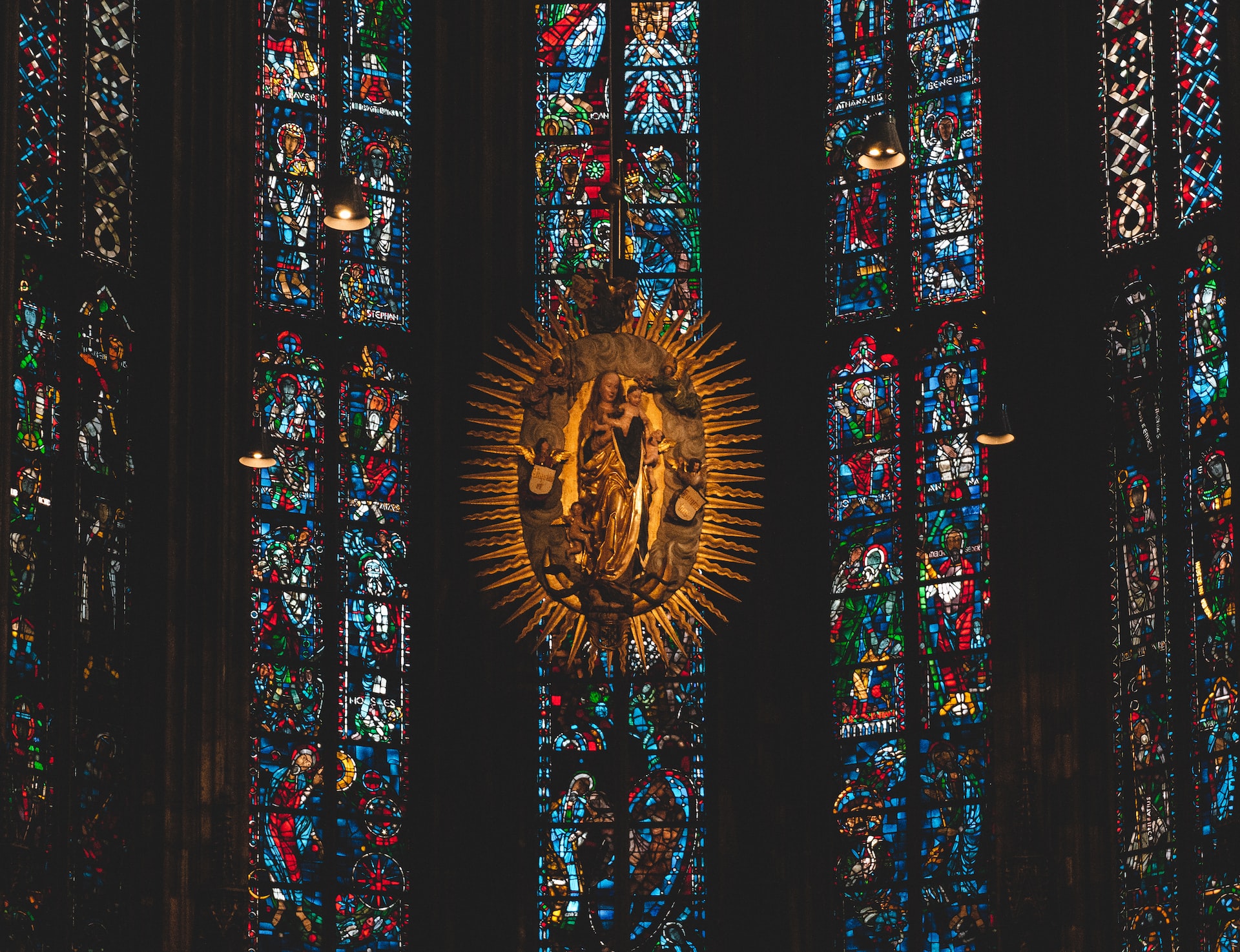
Notre Dame Cathedral, France
Notre Dame Cathedral is in Paris, the capital of France. The cathedral has become one of the most important symbols of the city in which it is located, as well as being world famous. The construction of the building, whose real name is Notre Dame de Paris, took approximately 170 years. The cathedral, whose construction was completed in 1334, bears the characteristics of French Gothic architecture. The works of art inside the cathedral are as important as the exterior architecture. One of the elements that make the exterior of the cathedral eye-catching is the flying skeletons that do not support the walls. In addition, there are ten huge bells in Notre Dame Cathedral. The bells ringing on important days and events add harmony to the beauty of the cathedral. The building, which contains important sculptures, was recorded on the World Heritage List in 1991.
Tower of London, England
Known as the oldest royal palace in England, the tower was built between 1377 and 1399. The Tower of London, which has a deep-rooted history with 853 years of history, was included in the UNESCO World Heritage List in 1988. There are various parts of the tower that fascinate those who see it with its eye-catching beauty, and it is taken under protection. The purpose of the tower, which was started to be built at the request of William I, was to protect the security of the city. There are many different sections in the tower whose purpose is to protect London. The Tower of London sections is divided into eight. One of these sections is the Green Tower, known as the white Tower Green. Another section is the White Tower. Along with the sections named White and Green Towers, another remarkable part of the castle is the Bloody Tower. The reason for taking this name is King III. It’s about the belief that Richard’s brother was killed here. Jewel House, Beauchamp Tower, Royal Armory, St. John’s Chapel, and the Medieval Palace form other parts of the Tower of London.
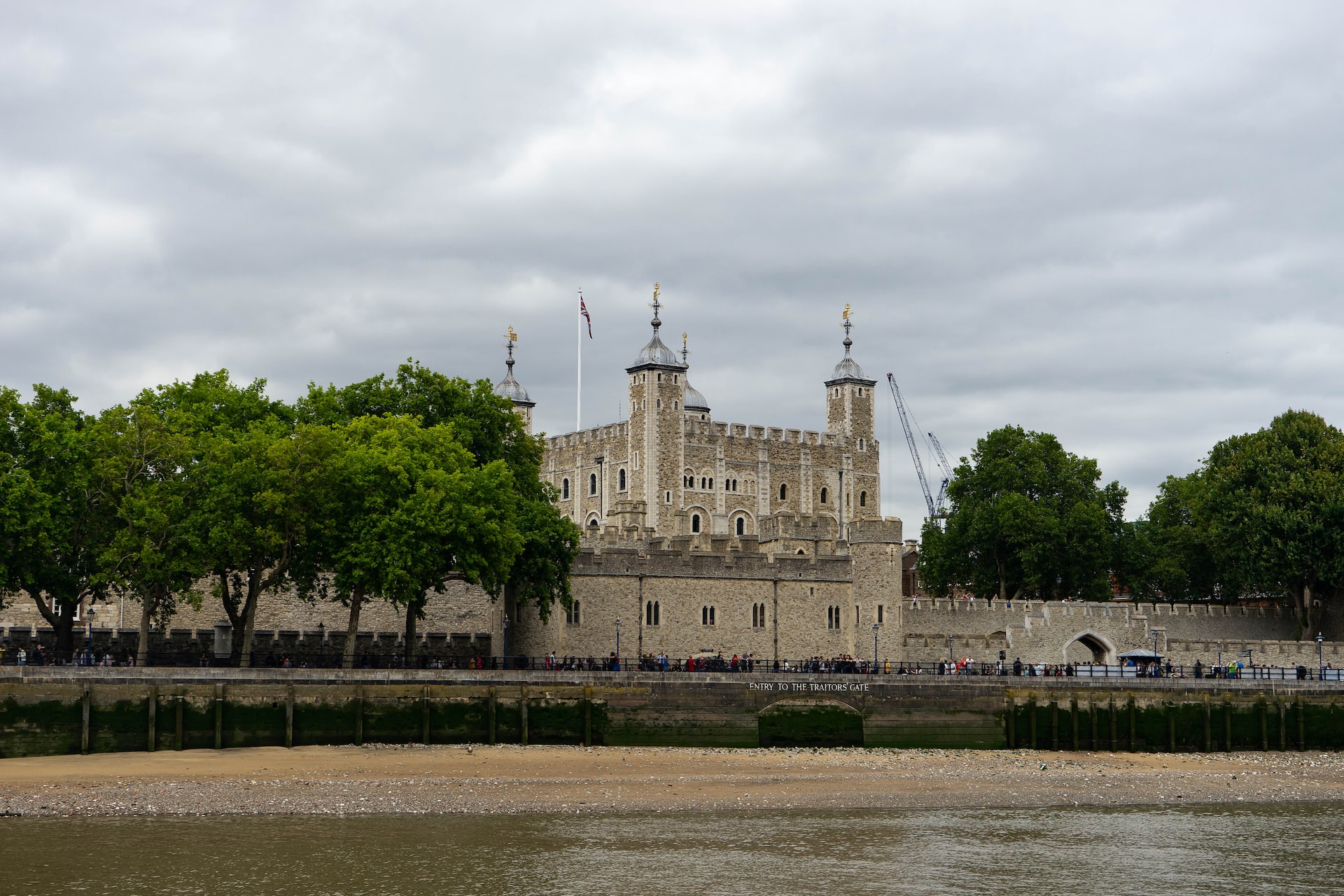
Leaning Tower of Pisa, Italy
The history of the Leaning Tower of Pisa, which was included in the UNESCO World Heritage List in 1978, dates to ancient times. Dating back to 1773, the Leaning Tower of Pisa is in the city of Pisa in the Tuscany region of Italy. Despite its deep-rooted history dating back to the 13th century, the Leaning Tower of Pisa defies gravity because the Leaning Tower of Pisa attracts the attention of many tourists every year with its tilted structure. The reason for the inclination of the tower is due to a small calculation error made by the architects of the period. This small mistake made by Italian architects in the planning of the third floor has caused the great reputation of the Leaning Tower of Pisa today. The construction of the 8-story tower took exactly 198 years. The materials of the Leaning Tower of Pisa, whose construction was completed in almost 200 years, consist of limestone and marble. Today, many tourists continue to immortalize the Leaning Tower of Pisa in their own frames by posing creatively with the tower’s tilted image.
Palace of Catalan Music, Spain
The music palace built for the “Orfeó Català Choir” is located in Barcelona, Spain. The location of the Catalan Palace, built between 1905 and 1908 by the architect Lluís Domènech i Montaner, is very important in the Renaissance Movement. It is known that the rich families among the people covered the construction costs of the palace. Especially the Catalan Music Palace, which looks like a jewel with its ceiling-stained glass, seems to be a work of art in itself. The structure, which carries traces of Modernism art and Gothic architecture, attracts the attention of tourists with its visual that is compatible with the music that adds soul to it. Originally named Palau de la Música Catalana, the palace was included in the UNESCO World Heritage List in 1997. Those who want to see it can visit the palace on a tour that takes about an hour.
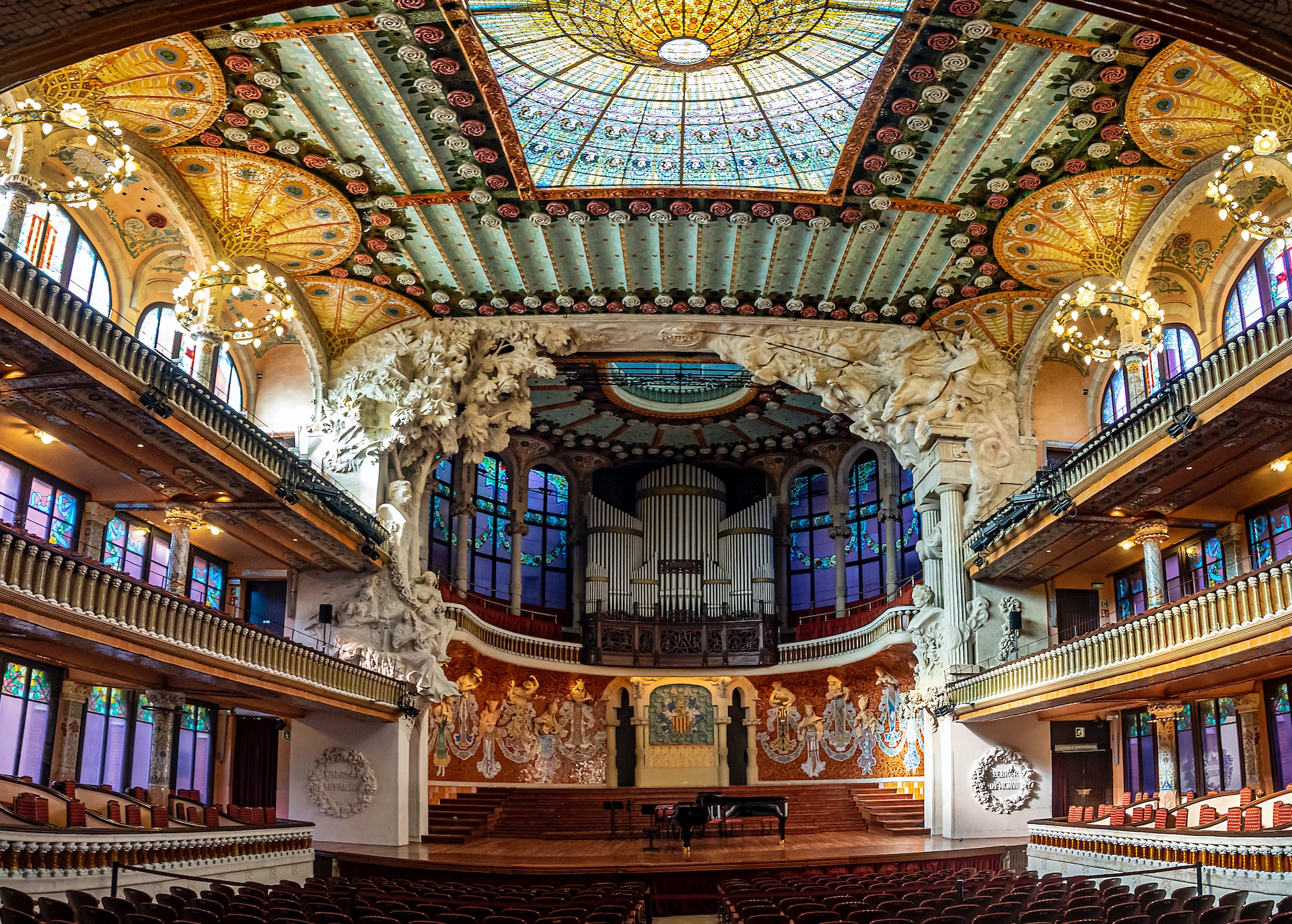
Mount Athos, Greece
Mount Athos, which was included in the UNESCO World Heritage List in 1988, is a very interesting place. There are multiple reasons for this. Women are not allowed to enter Mount Athos in Greece. Not only women but also female animals are not allowed to enter Mount Athos in Thessaloniki, Greece. There is also a limitation for men who can enter the mountain. The daily number of visitors to the mountain cannot exceed one hundred men. The mountain, where the communal clergy is located, is considered the holiest site of the Orthodox. On Mount Athos, which has a mystical atmosphere, the day starts with the bells ringing at 04:00 in the morning.
Rhaetian Railway, Switzerland
Rhaetian Railway, known as Die Rhätische Bahn, is a masterpiece from the Swiss Alps and combined with the beauty of nature... The railway, whose construction was completed between 1904 and 1910, connects two historical railway crossing lines. It also attracts attention with the railway bridge that passes through the Albula/Bernina Lands. The length of the Albula line is 67 km, the length of the Bernina line is 61 km, and a part of the railway passes through the Italian border. Another element that makes this railway unique is the red train called “Glacier Express.” The title of this popular train is the slowest-moving high-speed train in the world. This train in red color creates a postcard-like image, especially in the winter season. Traveling on the railway, which was included in the World Cultural Heritage List in 2008, is one of the most enjoyable experiences...
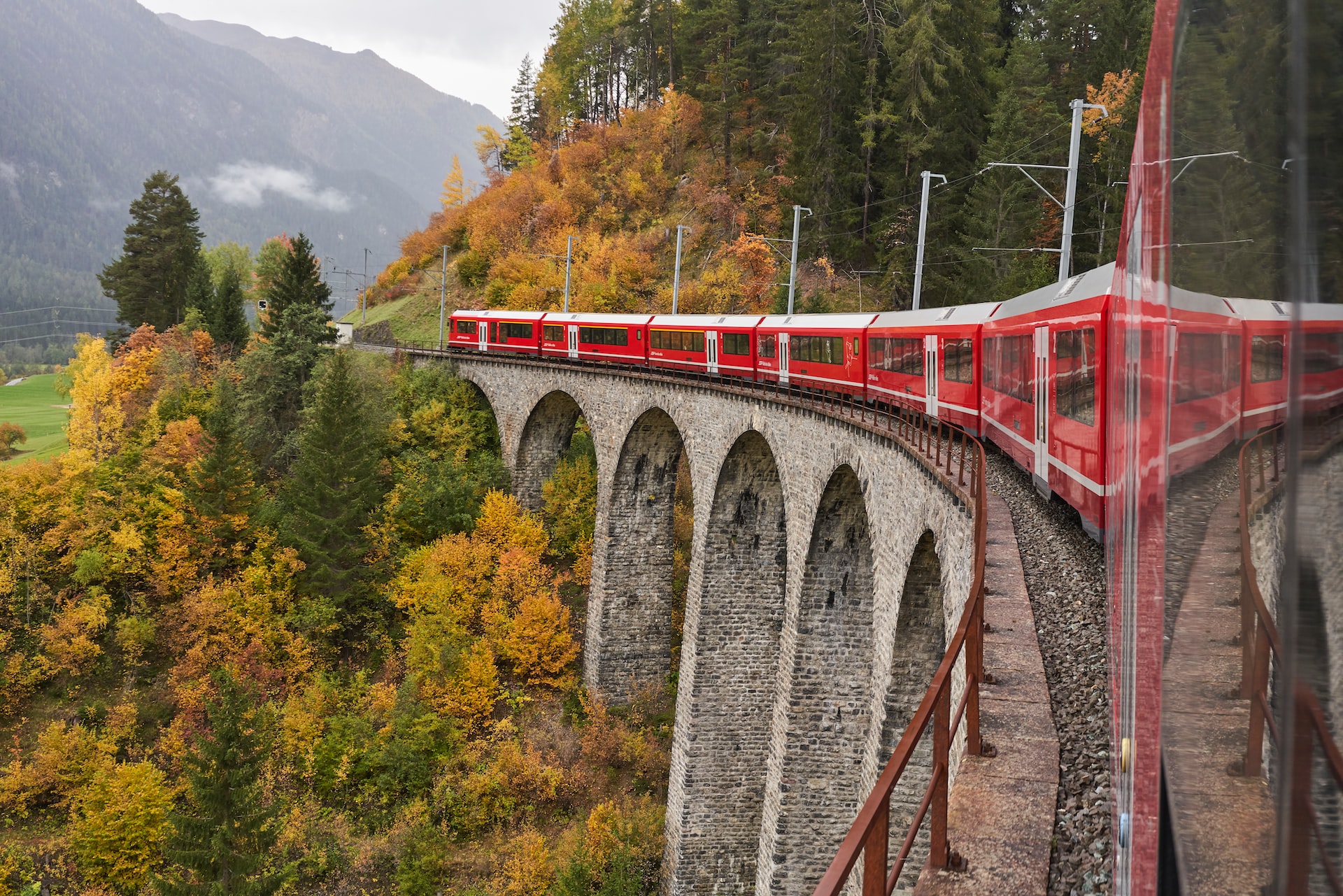
Bruges, Belgium
It’s time in a city called Bruges or Bruges, which is a fairy tale, not like a fairy tale... Bruges, a priceless city for those who are interested in the past, is one of the must-see places. Bruges, Belgium’s most tourist-attracting city, has defied history, wars, in short, anything that can wear down a city. It is a fascinating place with its unspoiled architectural structures, canals reminiscent of Venice, city squares, famous bells, important buildings, and the lake of love and nature... This fabulous city, which is not surprising that it has been included in the UNESCO World Heritage List, is worth a visit.
Amsterdam Canals, Netherlands
We know how popular the Italian city of Venice is with its canals. However, Amsterdam Canals is not inferior to Venice. Recognized as a UNESCO World Heritage Site by the Council in 2010, the canal is one of the important parts of Amsterdam, the capital of the Netherlands. Known as the Venice of the North, the canal contributes to the city’s culture, history, and tourism. The construction of hundreds of canals in Amsterdam and its dazzling historical bridges with architecture date to the 18th century. This city, which should be seen even to watch the water flowing among the colorful buildings, manages to attract many tourists every year.
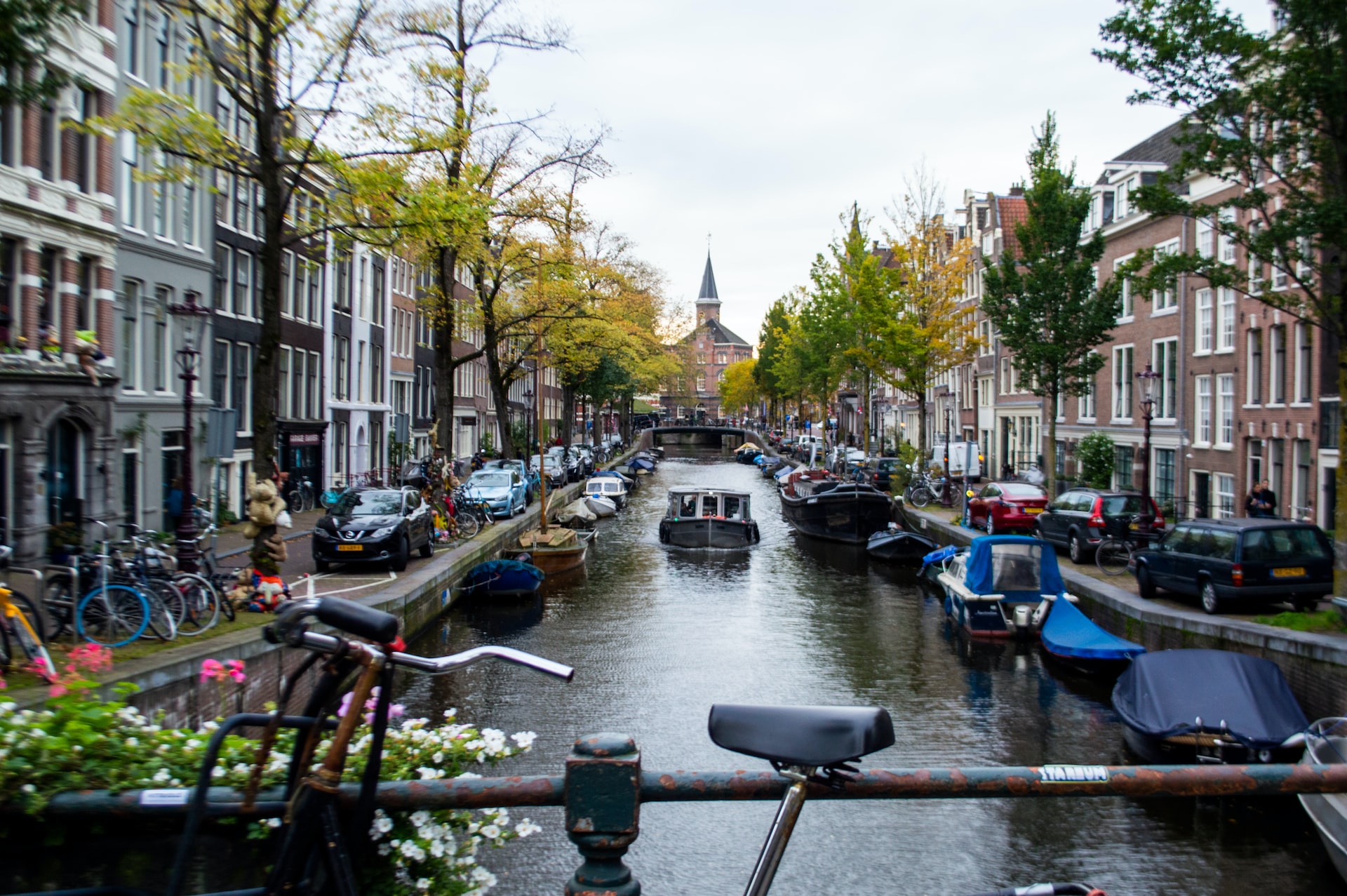 Bu da bizden: Türkiye’nin Değerleri: UNESCO Mirasları
Bu da bizden: Türkiye’nin Değerleri: UNESCO Mirasları



